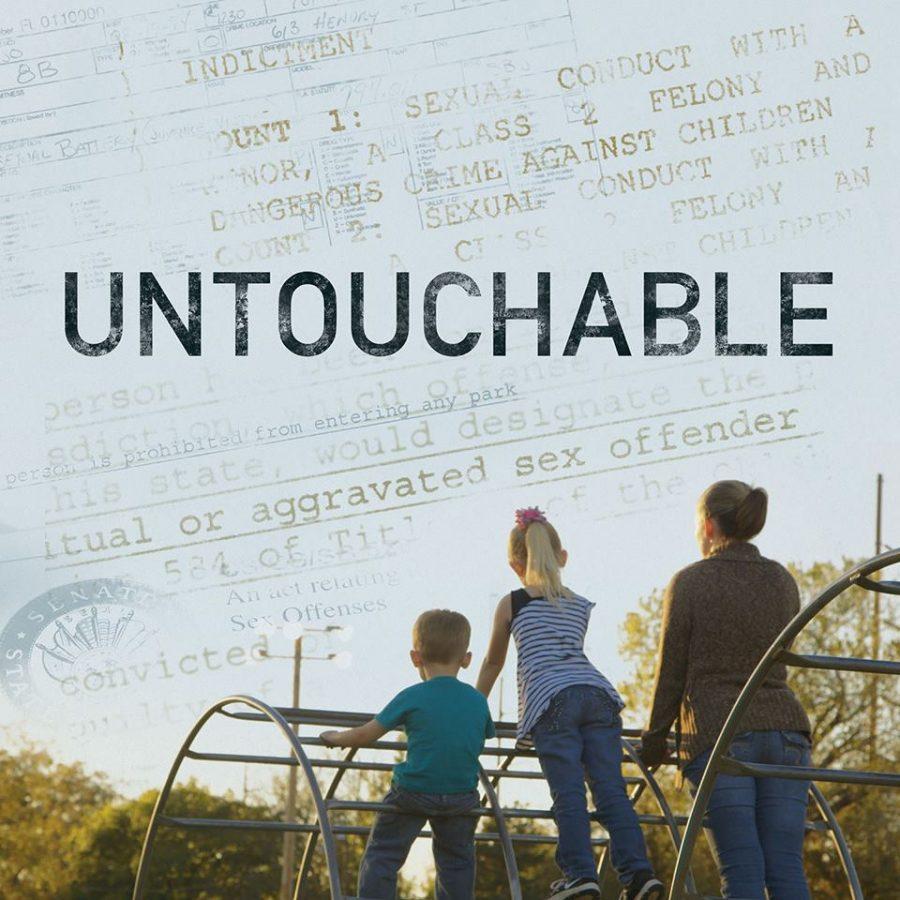‘Untouchable’ Questions the Unspeakable Truth
Directed by David Feige, “Untouchable” is a documentary that examines sex offender registry laws.
April 22, 2016
“Untouchable” is the kind of movie that stays with you long after the credits roll and the lights come on in the theater. It’s a documentary that makes each audience member reevaluate his or her moral compass and, like a stereotypical hero on a quest, makes one question the definitions of good and evil. Premiering at the Tribeca Film Festival, “Untouchable” chronicles the enforcement of strict sex offender laws and the men and women behind and against them. Through a diversified lens, director David Feige constructs a balanced story of a controversial topic.
The film documents top Florida lobbyist Ron Book who, after uncovering that his long time nanny sexually abused his daughter Lauren, used his political prowess to pass some of the harshest sexual offender laws in the country. The impact of these laws is far more widespread than one would think, causing thousands of criminals to forcibly abide by them.
“Untouchable” is a truly remarkable example of three-dimensional storytelling, explaining the backstory of each subject and how Book’s laws affected their lives. Shawna Baldwin is a mother of two and has been a sexual offender for over 15 years. She lives her day-to-day life under the deep dark shadow of her past, having earned her title as “sexual offender” by having consensual sex with an underage boy. At the time, Shawna was younger and lived with her neighbor, the mother of the teenager, and even though the sex was consensual, she was branded as a tier three sexual offender, the worst possible for the offense.
Baldwin is one of many subjects Feige chooses to follow over the course of two years. The other sexual offenders he portrays are surprisingly apologetic in their crimes, and suffer with who they are each day. As a viewer, we see Book put into law that sexual offenders are forbidden from living within 2,500 feet of a school. It’s illegal to even reside in Miami Beach at all if you’re a convicted sex offender.
Public citizens are immediately thankful for these laws, knowing every child is made safe because of them. Yet Feige digs deeper into the other perspective and, instead of showcasing the public’s views of this law, we see how the sex offenders themselves are dealing with being ostracized.
Many offenders sleep under bridges and form entire communities under Miami’s Julia Tuttle Causeway that runs through Miami. They sleep in tents, living outside in conditions not fit for anyone. Feige gives humanity to these criminals and tries to make us see how the punishment may be too severe. These criminals may get jail time, but once they are released they carry the title of sex offender to the grave, like a modern scarlet letter their profile can be found in public databases and the neighborhood must be legally notified of their presence.
“Untouchable” doesn’t try to change its audience’s perception of sexual assault or force them to think lightly of sex offenders, but it does succeed in opening up the conversation for civilians and government alike to discuss the strict laws surrounding this taboo subject. It’s a model example, a documentary that makes viewers uncomfortable, while uncovering how deeply broken the world really is from both sides of the coin.
“Untouchable” is screening as part of the 2016 Tribeca Film Film Festival.
Email Sidney Butler at [email protected].



























































































































































